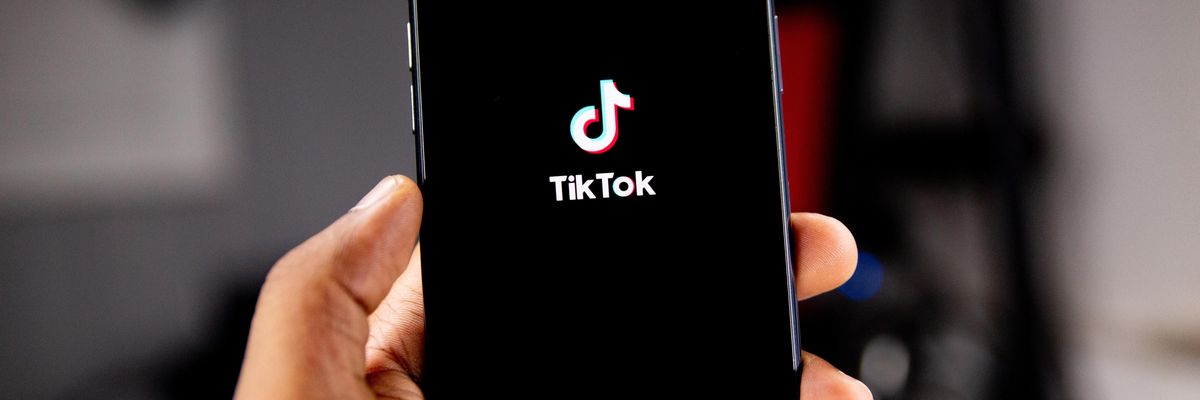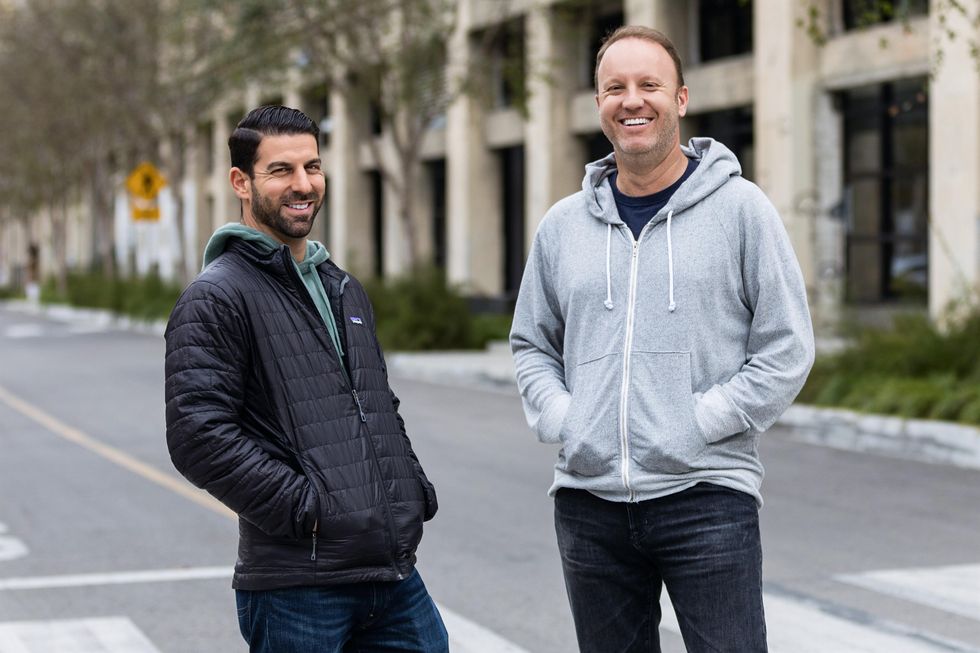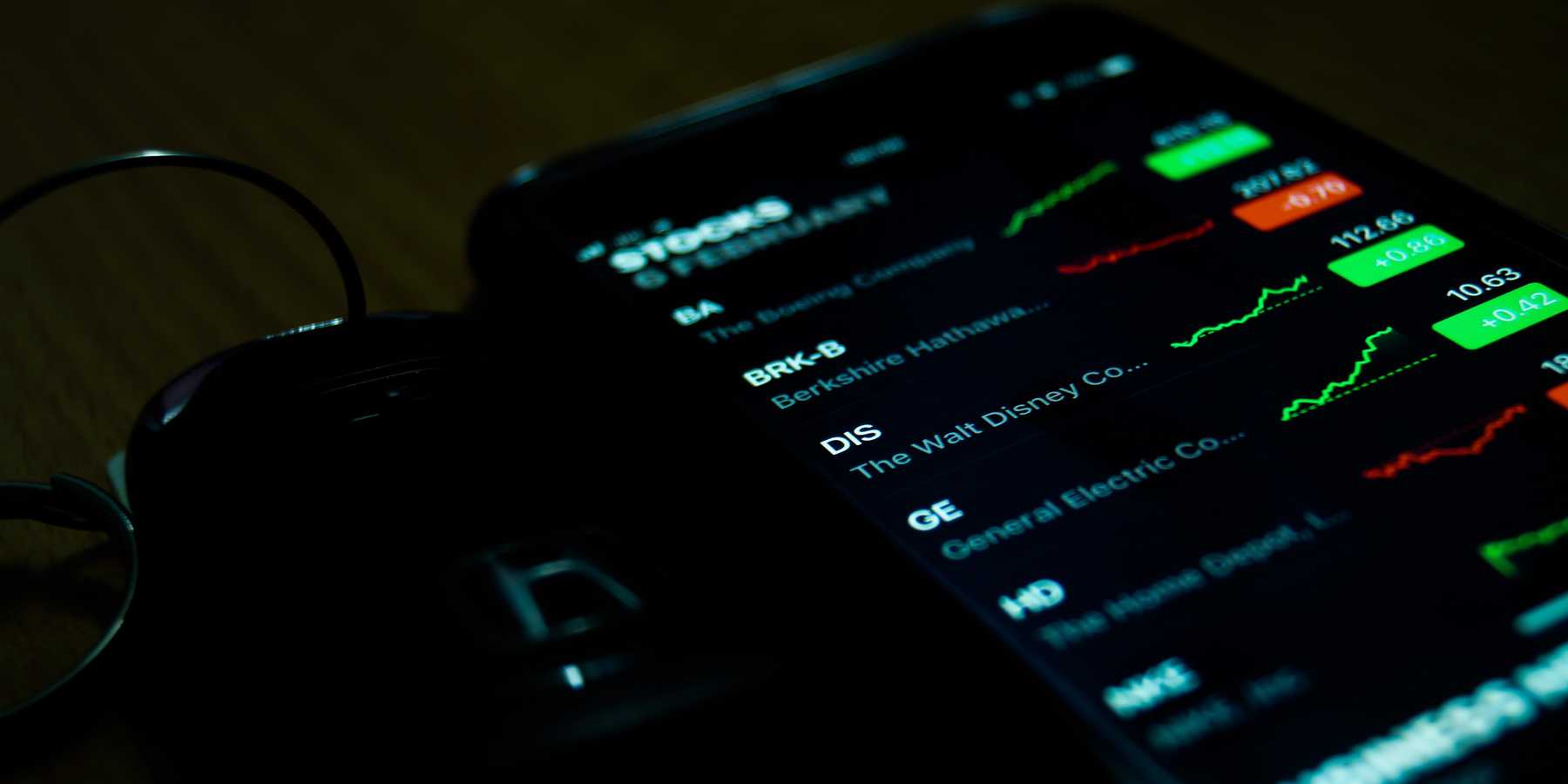

Get in the KNOW
on LA Startups & Tech
X
Photo by Solen Feyissa on Unsplash
TikTok Ventures Deeper Into Music With New Sound-Editing App
Kristin Snyder
Kristin Snyder is dot.LA's 2022/23 Editorial Fellow. She previously interned with Tiger Oak Media and led the arts section for UCLA's Daily Bruin.
TikTok is continuing its foray into the music industry by testing a new sound-editing app for musicians and creators called Mawf.
The Culver City-based video-sharing app and its Chinese parent company, ByteDance, are currently beta-testing the sound-editing tool throughout Europe and the U.K., Business Insider reported Wednesday.
Mawf transforms users’ vocals and other audio inputs into instrumental sounds like trumpets, saxophones and flutes. A series of levers allows users to modify the sounds, which are sourced from the machine-learned analysis of recordings by professional musicians, according to the app’s website. Music production platforms, such as Ableton Live and Logic Pro, can integrate Mawf’s features as a plugin, which allows users to incorporate the app’s audio into their projects.
TikTok’s experiment with Mawf comes after the social media firm launched its own music distribution platform, SoundOn, last month. The platform lets artists directly upload their music to TikTok and earn royalties when that music is used in videos.
TikTok has carved out an increasingly influential role in the music business, with the video-sharing platform popularizing music by new and established artists alike and launching several successful music projects. “The Unofficial Bridgerton Musical”—which originated as a TikTok passion project—won this year’s Grammy Award for Best Musical Theater Album, March, while pop star Olivia Rodrigo took home the Best New Artist award after her hit song “Drivers License” was featured in more than 1.4 million videos on the app. TikTok also recently backed its first musical theater production, “For You, Paige,” which premiered last week in New York.
From Your Site Articles
- TikTok Launches SoundOn To Help Music Artists Monetize Songs ... ›
- TikTok Expands Max Video Length - dot.LA ›
- TikTok Funds Its First Musical, "For You, Paige" - dot.LA ›
Related Articles Around the Web
Kristin Snyder
Kristin Snyder is dot.LA's 2022/23 Editorial Fellow. She previously interned with Tiger Oak Media and led the arts section for UCLA's Daily Bruin.
https://twitter.com/ksnyder_db
A TV Show Built for the Reddit-Fueled Investor Uprising Gets Funded
03:41 PM | February 03, 2021
Photo by Ishant Mishra on Unsplash
A new television show about IPOs thinks it can help upend Wall Street's pecking order, much like Reddit users did.
"Going Public," a series that debuts this summer, will follow five companies over 10 weeks, culminating in NASDAQ IPOs in which viewers are encouraged to invest. It aims to turn living rooms across the country into a network of mini "Shark Tanks."
The show aimed at everyday investors comes just as the Reddit-and-Robinhood-fueled rise of GameStop shares sent notice to Wall Street that they ignore retail investors at their peril.
And it just got some investors of its own.
On Wednesday, Crush Capital, the L.A.-based fintech company behind the series, announced it will accelerate the show's development with a $3.25 million investment from over 30 investors, including Backstage Capital managing partner Arlan Hamilton, fashion brand Tory Burch co-founder Chris Burch and fintech company Acorns co-founder and chairman Walter Cruttenden.
Getting in on an IPO before a company goes public has traditionally been the preserve of investment banks, financial institutions and professional investors, but "Going Public" aims to bring early access to everyday investors.

Todd Goldberg and Darren Marble
Following the decision by Robinhood to restrict customer transactions, which has precipitated dozens of lawsuits, Crush Capital founders Darren Marble and Todd Goldberg see their initiative as more timely than ever.
"We're at a moment when retail brokerages have been exposed as serving Wall Street oligarchs," said Marble. "(Robinhood's) response has been disjointed and discombobulated and I think there's a clear opportunity for another firm to step in and truly advocate for middle-class Americans, which is the premise that our company was based on."
"Robinhood has a track record of lying to their customers," he added, pointing to a $65 million fine the SEC leveled against the company for misleading customers about how they make money.
Marble and Goldberg founded Beverly Hills-based Crush Capital in 2017 to push back against Wall Street privileges and cater to retail investors.
"We got sick and tired of seeing companies that we all know and love and are customers of – Uber, Lyft, Sonos, Beyond Meat, Aribnb, DoorDash, Pinterest – going public, but where we were locked out," said Goldberg. "We want to change that."
"Going Public" will allow viewers to access IPO and pre-IPO investment opportunities at the same terms as institutional investors and, in some cases, before the traditional players can get in.
The show will be broadcast on Entrepreneur.com, which claims 14 million unique monthly viewers. It is being produced by Emmy-nominated studio INE Entertainment, whose previous reality-show credits include "The Biggest Loser" and "MasterChef."
Lauren Simmons, the youngest-ever female trader on the New York Stock Exchange and second Black woman ever to hold such a role, will host and guide viewers through their investment decisions, Marble said.


Viewers will be able to invest in the companies of their choosing through a website, which will also include educational materials on risk-versus-reward and the IPO process, as well as disclosures that the companies will have to file with the U.S. Securities and Exchange Commission.
Marble and Goldberg said they will announce the five participating companies over the next few weeks. All of the companies, they said, are high-growth consumer product firms in operation for several years and with revenues between $20 million and $100 million.
"These companies are not desperate; this is not a last resort," said Marble. "They could do a Goldman Sachs-led Series A financing round or a SPAC, but they're turning those options down and leaning into 'Going Public' because we have something none of those options can offer, which is a mass marketing vehicle to help them create awareness for brands and products with millions of potential customers and investors all at the same time."
They've also prioritized finding diverse founders.
"It's shocking to me there's only been about 21 female founders who've taken their companies public," said Goldberg. "The first company we're going to announce has female, minority, immigrant founders. We're excited to feature them, and start changing the conversation through our actions so people can look and see and feel and understand what true entrepreneurship in the U.S. really looks like."
Participating companies will pay Crush Capital an upfront cash payment and stock compensation. Throughout the show they will receive mentorship from professional investors and executives, including early Priceline executive Jeff Hoffman and Schmidt's Naturals founder Jaime Schmidt.
Roth Capital Partners, an investment bank focused on small market-cap companies, will diligence, price and underwrite the IPOs.
The show is leveraging a relatively new way for companies to raise money. In 2012, Congress passed the JOBS Act, which eased securities regulations to make it less of a hassle for smaller companies to fundraise.
An amendment called Regulation A+ further enabled companies going public to raise up to $50 million from unaccredited investors. The change also loosened filing requirements, such as eliminating the "quiet period" wherein a firm must refrain from publicly disclosing information for a time leading up to the IPO.
Marble and Goldberg aren't concerned that the mounting political pressure for an updated regulatory response to the latest market madness will hurt "Going Public."
"These JOBS Act exemptions are tools that make it easier for small and emerging companies to access capital," Marble said. "That's a theme that the Biden administration is supporting in no unclear terms."
Marble added he's encouraged that in March the fundraising cap under Regulation A+ will increase to $75 million.
"We think we'll continue to see those caps increase over time," he said.
From Your Site Articles
- Bill Gurley On Startups,Venture Capital And Scaling - dot.LA ›
- Backstage Capital Opens Fund to Everyday Investors - dot.LA ›
- Going Public TV Show Allows Viewers to Invest on Screen - dot.LA ›
- 'Going Public' Raises $2.75M, Introducessa New Contestant - dot.LA ›
- Backstage Capital Cuts Three-Quarters of Staff - dot.LA ›
Related Articles Around the Web
Read moreShow less
ipocrush capitalarlan hamiltonacornswalter crutendenchris burchtory burchrobinhooddarren marbletodd goldberggoing public
Sam Blake
Sam primarily covers entertainment and media for dot.LA. Previously he was Marjorie Deane Fellow at The Economist, where he wrote for the business and finance sections of the print edition. He has also worked at the XPRIZE Foundation, U.S. Government Accountability Office, KCRW, and MLB Advanced Media (now Disney Streaming Services). He holds an MBA from UCLA Anderson, an MPP from UCLA Luskin and a BA in History from University of Michigan. Email him at samblake@dot.LA and find him on Twitter @hisamblake
https://twitter.com/hisamblake
samblake@dot.la
🔦 Spotlight
Hey LA,
This week’s most interesting story isn’t a flashy new feature, it’s a quieter flex: Snapchat is getting people to pay for Snapchat, on purpose.
Snap just proved “free app” isn’t the only business model
Snap says its direct revenue business is now running at a $1B annualized pace, with 25M+ subscribers paying across a growing menu of products like Snapchat+, Lens+, Snapchat Premium, and Memories Storage Plans. That matters because it’s not just a nice add-on to ads, it’s a different kind of relationship with users. Ads monetize attention. Subscriptions monetize intent.
And intent is sticky. If someone pulls out a card for you, they don’t churn the way an algorithm does.
Creator Subscriptions are the real tell
Snap is also launching Creator Subscriptions, starting with an alpha on February 23 for select U.S. creators, then expanding to Snap Stars in Canada, the U.K., and France in the following weeks. The offer is straightforward: subscriber-only Stories and Snaps, priority replies, and an ad-free experience inside that creator’s Stories.
The strategic move is even simpler. Snap wants “paying for closeness” to happen inside Stories and Chat, not on some external membership page. If they get that right, creators stop treating Snapchat as just a top-of-funnel channel and start treating it like a place to actually monetize their audience. Snap, meanwhile, gets a revenue stream that doesn’t care what CPMs are doing this quarter.
Meanwhile, IRL: lululemon’s Studio Yet.
Lululemon’s Studio Yet. pop-up is running Feb. 18 through March 8 at 8175 Melrose Ave. It’s a ticketed, limited-capacity lineup of workouts and community programming, with proceeds (less fees) supporting BlacklistLA.
Keep scrolling for the latest LA venture rounds, fund news and acquisitions.
🤝 Venture Deals
LA Companies
- Radiant announced a strategic investment from Lockheed Martin via Lockheed Martin Ventures, further oversubscribing the company’s current financing round. Radiant is developing its 1 MW Kaleidos portable nuclear microreactor and says it’s targeting a first reactor startup this summer at Idaho National Laboratory, with initial customer deployments planned for 2028. - learn more
- Mesh Optical Technologies announced it has raised over $50M, led by Thrive Capital, to scale production of its Alpha C1 optical transceiver, which converts electrical signals to light at 1.6 Tbps for AI data centers. The startup says its edge is manufacturing: it builds the optical engine using fast, repeatable flip-chip die bonding to make high-volume, U.S.-based production of optical links possible, backed by a team with experience from SpaceX and Intel.- learn more
LA Venture Funds
- Alexandria Venture Investments participated as an existing investor in Ten63 Therapeutics’ latest strategic financing, which also included participation from Morpheus Ventures and added new backers such as Chugai Venture Fund and the Gates Foundation, bringing total funding to more than $45M. Ten63 says it will use the capital to scale BEYOND, its AI-driven “Large Quantum Chemistry Model” platform for designing small-molecule drugs against historically “undruggable” targets, including programs in oncology and an HPV-focused effort supported by the Gates Foundation.- learn more
- B Capital participated in Code Metal’s $125M Series B, a round led by Salesforce Ventures that valued the company at $1.25B, alongside investors including Accel, J2 Ventures, Shield Capital, Smith Point Capital, and others.Code Metal says it will use the new capital to expand engineering, accelerate product development, grow government and commercial partnerships, and scale go-to-market for its “verifiable” AI code generation and translation platform used in mission-critical environments. - learn more
- Bonfire Ventures co-led Odynn’s $9.5M seed round alongside 8VC, with participation from Khosla Ventures and General Catalyst. Odynn says it’s building personalized AI infrastructure for travel companies, aiming to replace one-size-fits-all booking portals with dynamic experiences that tailor search, recommendations, and conversion flows to each traveler. - learn more
- MTech Capital led Qumis’s $4.3M oversubscribed seed round, which also brought in American Family Ventures as a new strategic investor and pushed total funding to $6.75M. The company says it’s building an attorney-trained AI platform for commercial insurance “coverage intelligence,” and will use the funding to expand go-to-market and deepen product capabilities as adoption grows among large brokers and carriers (including NFP). - learn more
- WndrCo participated in Mansa’s seed funding round, which the company says totaled $12M and was led by MaC Venture Capital. Mansa is now launching a vertical “micro-drama” format inside its app, debuting with the 27-episode original series The Heiress, The Baller & The Secret Society and positioning the feature as a mobile-first way to release serialized stories globally. - learn more
- Alpha Edison co-led Ownwell’s $50M Series B, with Wonder Ventures participating alongside investors including Mercato Partners, Intuit Ventures, Left Lane Capital, First Round Capital, Long Journey Ventures, and PROOF Fund. The round includes $30M in equity and $20M in debt financing from Western Alliance Bank, and Ownwell says it will use the capital to expand nationally and simplify the property-tax appeal process through a new “National Appeals Packet” product. - learn more
- Three Six Zero participated as an existing investor in Hook’s $10M Series A, which was led by Khosla Ventures with participation from Point72 Ventures, Imaginary Ventures, and Waverley Capital, bringing Hook’s total funding to $16M. Hook is an artist-first social platform that lets fans legally remix licensed songs using simple AI-powered tools and share them across social platforms, and it says the new capital will fund user growth plus product expansion like an Android app, richer creation formats, and deeper ecosystem integrations. - learn more
- Overture Ventures participated as an existing investor in Zero Homes’ $16.8M Series A, which was led by Prelude Ventures alongside SJF Ventures and the Exelon Foundation. Zero Homes says it’s using the funding to expand into new markets, broaden its home-upgrade offerings, and grow its contractor network, powered by a smartphone-based “digital twin” approach that produces upgrade designs and pricing remotely. - learn more
- Rebel Fund participated in Sphinx’s $7.1M seed round, which was led by Cherry Ventures alongside Y Combinator, Deel Ventures, and Singularity Capital. Sphinx is building browser-native compliance agents that work inside banks’ and fintechs’ existing tools to automate AML, KYC, and KYB work, with the new funding earmarked to scale that “agentic compliance workforce.” - learn more
- Matter Venture Partners led ChipAgents’ oversubscribed $50M Series A1, bringing total capital raised to $74M, with participation from existing investors Bessemer Venture Partners, Micron, MediaTek, and Ericsson. ChipAgents says it will use the new funding to scale its agentic AI platform for chip design and verification, expand engineering and research, and accelerate global deployment of multi-agent “chip teams,” alongside a new HQ buildout in Santa Clara. - learn more
- MemorialCare Innovation Fund participated in SpendRule’s $2M round, which was led by Abundant Venture Partners with additional backing from Zeal Capital Partners. SpendRule is emerging from stealth with an AI-driven platform that helps hospitals validate invoices against complex contract terms before payments go out, aiming to reduce overspending and “contract leakage” across purchased services. The company says early customers include health systems like MemorialCare, Kettering Health, and MUSC Health. - learn more
LA Exits
- Fred Segal is being acquired by Aritzia, which is buying the brand’s rights/IP (terms not disclosed) and planning a revival under its ownership. Melrose Avenue is central to the deal too, since Aritzia is also taking a lease on Fred Segal’s iconic ivy-covered site at 8100 Melrose as part of the comeback plan. - learn more
- The Expert is being acquired by Havenly in an all-equity deal (terms not disclosed), bringing The Expert’s high-end virtual designer consultations and trade-oriented marketplace into Havenly’s broader home and commerce ecosystem. Lee Anne Blake will join Havenly as chief commercial officer, and while The Expert will remain a standalone website, Havenly plans to plug in its tech to strengthen The Expert’s purchasing and procurement tools for designers. - learn more
Read moreShow less
RELATEDTRENDING
LA TECH JOBS


